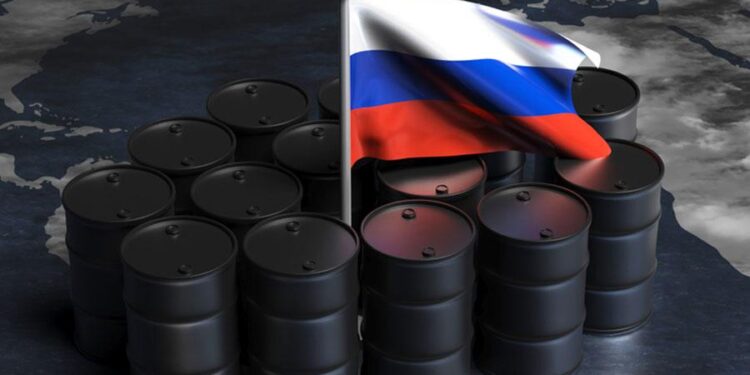Russian oil supplies to Hungary and Slovakia have been disrupted following an attack in Ukraine, Reuters reports. The incident has forced a halt in the flow of crude oil through key transit routes, raising concerns over energy security in Central Europe. Authorities and industry officials are closely monitoring the situation as the ramifications of the disruption unfold amid ongoing regional tensions.
Russian Oil Supplies to Hungary and Slovakia Disrupted Following Ukrainian Strike
Significant disruptions have occurred in the supply chain of Russian crude oil to Central Europe after a recent Ukrainian strike targeted key infrastructure. This unexpected event has forced emergency shutdowns of several pipelines, directly impacting deliveries to Hungary and Slovakia. Authorities in both countries have reported immediate shortages, sparking concerns over energy security and prompting discussions on alternative supply routes.
In response to the interruption, officials are coordinating efforts to mitigate the impact through several measures, including:
- Diversification of oil import sources to reduce dependency on a single supplier.
- Acceleration of strategic reserves release to stabilize domestic markets.
- Increased energy cooperation within the European Union to share resources.
| Country | Oil Supply Impact | Estimated Recovery Time |
|---|---|---|
| Hungary | 75% reduction | 3-4 weeks |
| Slovakia | 60% reduction | 2-3 weeks |
Impact on Central European Energy Markets and Regional Economies
The sudden disruption of Russian oil flows to Hungary and Slovakia marks a significant turning point for the region’s energy landscape. Both countries have traditionally depended heavily on Russian crude to fuel their refining sectors and meet domestic demand. With pipelines halted, immediate supply shortages risk triggering price volatility and operational slowdowns in key industries. Market observers warn that unless alternative sources are swiftly secured, energy security could become a critical concern, particularly during peak consumption periods.
Regional economies are bracing for a ripple effect as energy costs rise and uncertainty grows. The halt threatens to:
- Increase fuel prices for consumers and businesses, impacting transportation and manufacturing sectors
- Strain national budgets due to the need for emergency imports and potential subsidies
- Pressure policymakers to diversify supply routes and invest in renewable alternatives at an accelerated pace
| Country | Russian Oil Dependency (%) | Short-Term Alternatives |
|---|---|---|
| Hungary | 75% | Imports via Adriatic ports, stockpiles |
| Slovakia | 68% | Diversified pipelines, increased EU supply |
Strategies for Diversifying Energy Sources Amid Rising Geopolitical Tensions
In light of recent supply disruptions caused by geopolitical conflicts, European nations are accelerating efforts to reduce dependency on single-source energy imports. Hungary and Slovakia’s abrupt halt of Russian oil deliveries underscores the vulnerability of centralized supply chains. Consequently, diversifying energy portfolios has become a critical priority, with governments exploring a variety of alternatives. These include expanding liquefied natural gas (LNG) import infrastructure, investing in renewable energy projects, and reactivating strategic petroleum reserves to buffer against future interruptions.
Key approaches to diversification include:
- Enhancing LNG terminals and securing contracts with multiple global suppliers
- Boosting investments in solar, wind, and hydrogen energy projects
- Strengthening regional interconnections and cross-border energy trade
- Promoting energy efficiency measures to lower overall demand
| Strategy | Advantages | Challenges |
|---|---|---|
| LNG Imports | Flexible sourcing, rapid scalability | High infrastructure costs, market volatility |
| Renewables | Long-term sustainability, emissions reduction | Intermittency, initial investment |
| Energy Efficiency | Lower demand, cost savings | Requires behavioral change, gradual impact |
The Conclusion
The suspension of Russian oil supplies to Hungary and Slovakia marks a significant escalation in the ongoing geopolitical tensions stemming from the conflict in Ukraine. As both countries grapple with the immediate energy shortfall, the broader implications for regional energy security and European markets remain uncertain. Analysts will be closely monitoring how this disruption influences diplomatic efforts and the strategic recalibration of energy dependencies in Central and Eastern Europe.
















